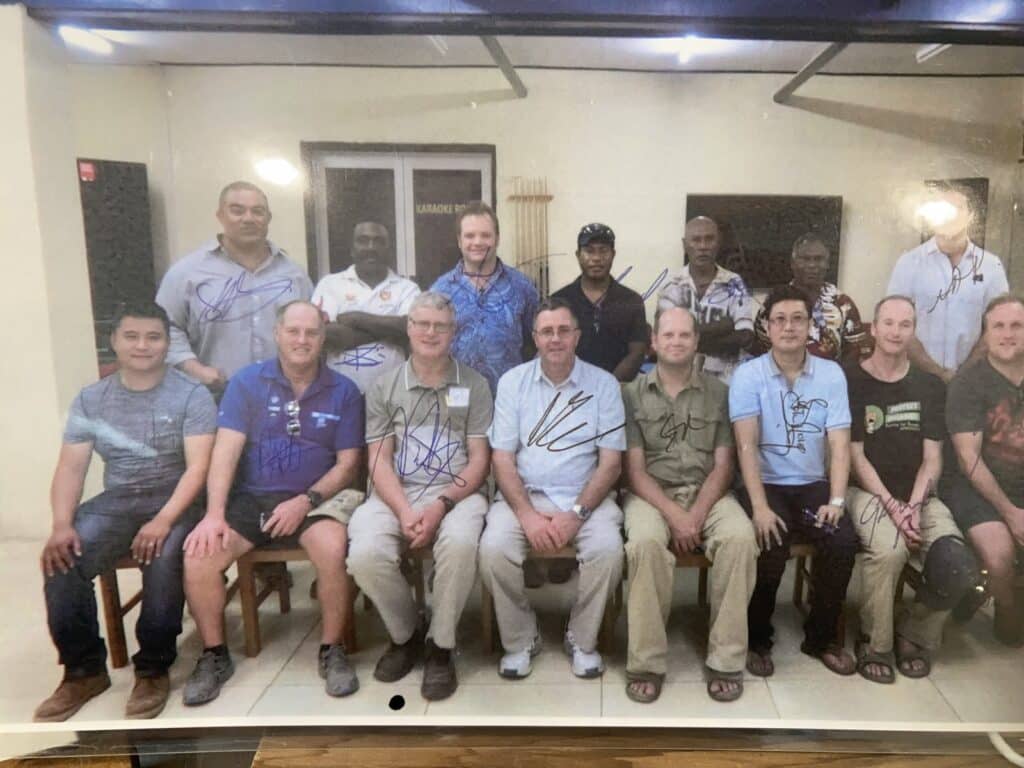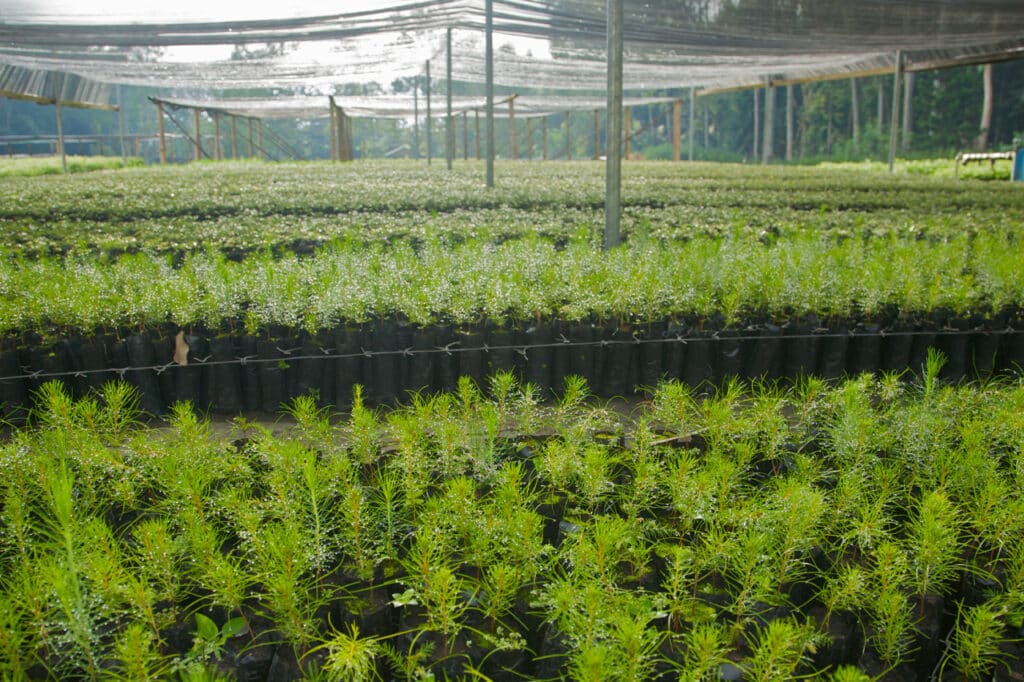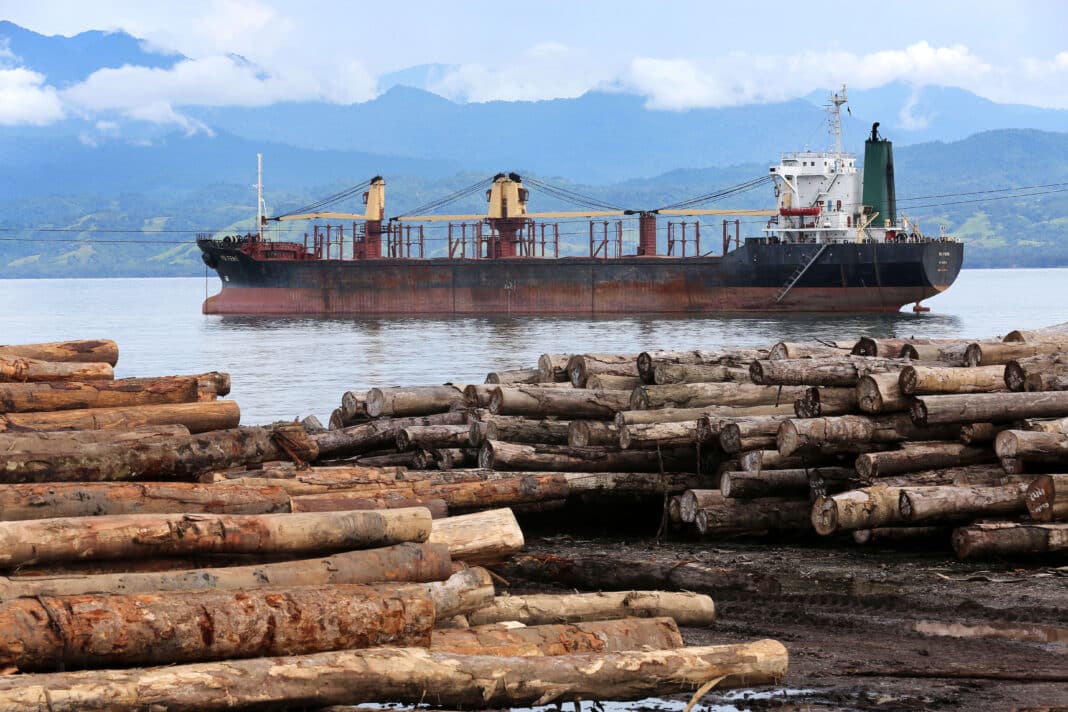The Pacific Islands are working towards a new Pan-Pacific Standard for Sustainable Forest Management, which could see the region protect more than 2 million hectares of forest area and provide the Asia Pacific region with access to more than AU $1 billion of certified forest products.
The regional standard could follow the joint Australia and New Zealand standard, developed in 2021, which was the first of its kind in the Asia Pacific region.
Discussed at the Asia Pacific Forest Commissioners meeting earlier this month, the new standard – which PEFC International could endorse – is a vital part of the region’s commitment to reduce deforestation and promote sustainable forest management.
According to Richard Laitly, the PEFC International Southeast Asia Manager and Linh Bui, also from PEFC International, who travelled to Sydney from Vietnam for the meeting, the Pan-Pacific Standard has been in the works for several years.
The new standard could include Fiji, Papua New Guinea, the Solomon Islands, Tonga and Vanuatu – with up to 90% of timber exported to China and allegedly tied up in “unsustainable and illegal logging.”
Wood Central understands that the new standard would greatly assist Trans-Tasman importers and provide a “green lane” for tropical timbers, most importantly demonstrating sustainable forest management.

In New Zealand, where the largest hardwood merchants and retailers participate in the NZITTG (the New Zealand Imported Timber Trade Group), the new standard could significantly assist in monitoring certified products imported into and sold through NZ building and construction networks.
According to the Australian Department of Agriculture and Fisheries (DAFF), more than 10% of timber entering Australia could be illegal. Still, that figure could be as high as 15% to 30%, according to Interpol.
In May 2021, the Guardian reported a portion of PNG’s exported timber – valued at $620m in 2019 – comes from special agricultural business leases, declared illegal in 2016.

The uncertified timber – not subject to PEFC or FSC certification – is sold to Malaysian brokers in the Pomio District, where it travels to Zhangjigang in China for manufacturing before being imported into Western Markets as high-value flooring systems.
Is a regional approach to sustainable forest management the answer?
PNG Forest Products, based in Bulolo in Papua New Guinea, is one of the Pacific Islands leading integrated forest companies and is well-positioned to embrace a regional approach to sustainable forest management.
Supplying treated pine, plywood, kit homes and prefabricated buildings to Asia, Australia and New Zealand, it has carried the PEFC Chain of Custody for several years.
For PNG Forest Products, certification is a highly regulated approach – with its practices audited by an independent certification body, and it works with the PNG Forest Authority to meet PEFC requirements for sustainable forest management in Bulolo and Wau.

By introducing a new Pan Pacific Standard, governments across the region can address the trade of illegal timbers and provide greater transparency to supply chains.
It would also help enhance sovereign capabilities, including certification body capabilities, and reduce cost barriers typical of certification systems managed from Europe or North America.
That includes Fiji, where Minister for Forestry Kalaveti Ravu said the government is working with industry to improve harvesting practices.
“Harvesting timber over and above the forest sustainable level of harvest has resulted in degradation and reductions of biological diversity such that the quality of range of ecosystem service and products provided impact negatively,” the minister said at a tree planting event in Labasa yesterday.
According to Minister Ray, forestry is crucial in Fiji’s post-Covid recovery, with the country pushing to get its Mahogany products certified to access international markets.
In July 2022, the government launched the Forest Certification Gap Analysis and Roadmap Report – which emphasised the importance of certification in growing its global trading partners, especially Australia and New Zealand.
Valued at Fijian $213 million, it found that its value could be substantially higher if certified by PEFC or FSC, according to Fiji Hardwood General Manager Sami Dranibaka.
“The certification of forests will raise the market value of logs and its timber products to meet international markets.”
Most of Fiji’s mahogany timber market is in South America and the United States of America, where it is used for producing guitar components.
However, Australia and New Zealand markets have closed off mahogany timber trade from Fiji until certification is achieved.






